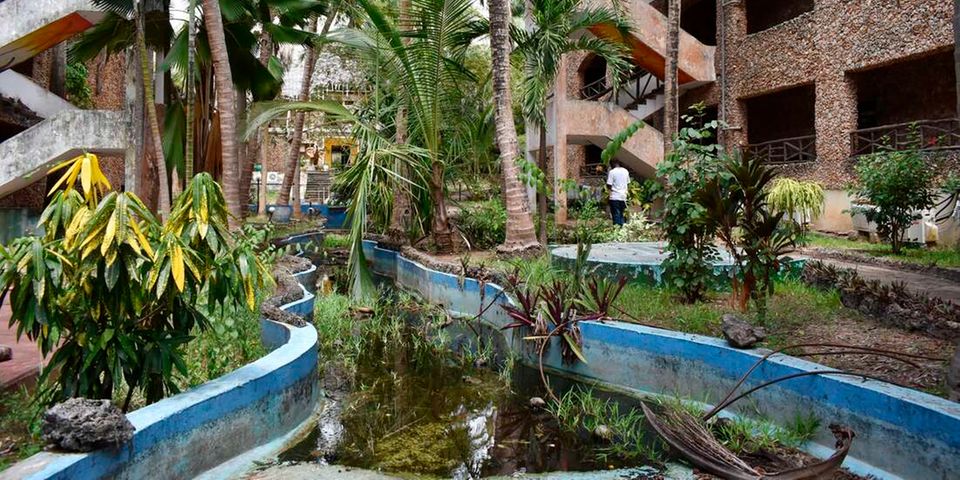For the past 19 years, the Israeli-owned Paradise Beach Hotel, bombed by Al-Qaeda-linked terrorists in 2002, has been trying to roar back to life with little success.
Its managers have injected Sh300 million into its operations to try to woo back tourists, but memories of the deadly attack have “refused” to leave the hotel.
With the dark cloud of terrorism always hanging on it, the Covid-19 pandemic made matters worse for the facility, which for many years was the darling of international tourists.
Unable to make the hotel attractive again to holidaymakers, the owners have decided to put it up for sale and exit the Kenyan tourism market.
Documents seen by the Nation indicate that the asking price for the once elegant facility is Sh800 million.
The 340-bed capacity hotel sits on 20 acres in Kikambala, Kilifi County, and some 100 metres from the Indian Ocean.
It gradually ceased operations eight years after the terrorist attack that left more than 13 people dead and scores injured.
The hotel, which drew tourists from Europe and especially Israel, is now a shadow of its former self.
In a previous interview with the Nation, Mr Yehuda Sulami, who managed the property, said the facility started losing business in 2005 and never recovered.
Mr Sulami, who is also the chairman of Simba Group Kenya, said the bombing disrupted business for a facility that entirely depended on tourists from Israel, Germany, France, Italy, and other European countries.
Wooing local tourists
“Efforts to resuscitate the facility have borne no fruits. We have no option but to sell it,” he said.
Over the years, owners tried to revive the business by wooing local tourists but the efforts did not pay off.
Westerners, Mr Sulami said, stopped coming to the hotel for fear of being targeted by terrorists.
The terrorist attack reduced charter flights from Europe that used to bring in up to 270 guests per flight to the hotel.
In an attempt to restore the hotel’s elegance, some Sh300 million has been used on renovations, but it has remained deserted.
Once Kenyan’s top tourist destination, it is one of the many facilities that have suffered due to terror threats. While some have survived the threats and continue to operate, the owners of Paradise have decided to quit the Kenyan market.
Before the attack, the hotel used to boast more than 100,000 annual international tourists. Today, only security guards are left watching over the facility.
On November 28, 2002, a suicide bomber detonated explosives while two others drove past the barrier and crashed into the hotel’s reception desk, detonating an explosives-laden car.
The attack ushered in a gradual decline in the facility’s appeal to the international tourists who called the hotel their second home.
15 people killed
It was a major setback for hotels on the Coast as most tourists avoided the region. This was further aggravated by travel advisories issued by Western countries to their nationals. That sealed the facility’s fate.
Of the 15 people killed in the attack, 12 were Kenyans while the rest were Israeli tourists. The Kenyans were members of a troupe performing a welcome dance for the arriving guests.
Paradise was one of the Israeli-owned facilities that tapped into the Kenyan tourism business before the waves of terror attacks.
Kenya offered a perfect tourism opportunity for foreign investors but insecurity brought about by terror attacks have pushed some, including Mr Sulami, out of business.
Israel’s Arkia Airlines, which used to bring tourists to the Coast, stopped flying the Mombasa route after an attempted missile attack by Al-Qaeda-linked terrorists on the same day as the hotel attack.
The plane, carrying 250 passengers and 10 crew members, had taken off from Mombasa’s Moi International Airport when the terrorists fired the missile. It missed its target.
Credit: Source link

